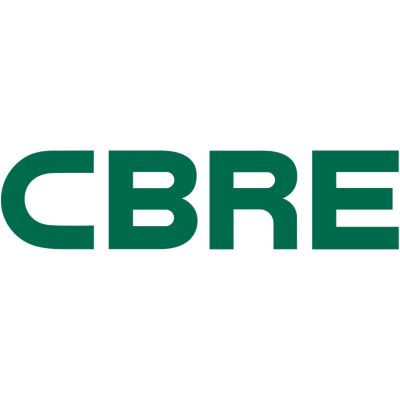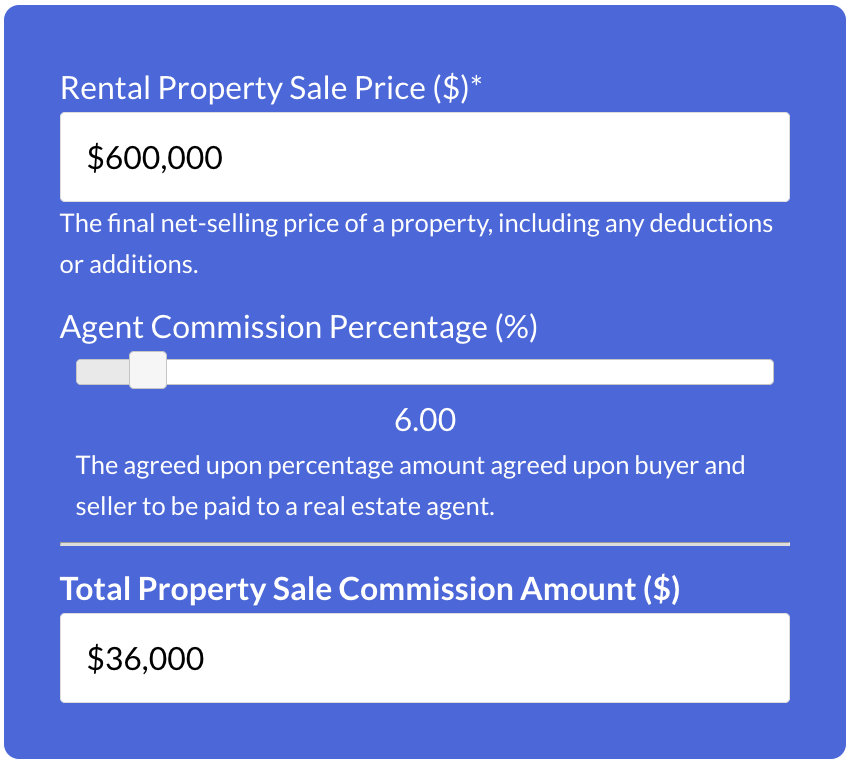Last Updated: February 2024

Commercial Real Estate Agents, often called Commercial Brokers, play a central role in commercial property transactions. These specialized professionals possess a deep understanding of the market and the unique aspects of all types of commercial properties, such as retail spaces, office buildings, and industrial sites.
What is a Commercial Real Estate Agent?
Commercial Real Estate Agent Definition
A Commercial Real Estate Agent, also known as a Commercial Broker, is a licensed professional who specializes in commercial leasing, buying, selling, and management of properties used for business purposes, such as offices, retail spaces, warehouses, and industrial buildings.
Commercial Real Estate Agents Explained
Commercial Real Estate Agents are like regular residential real estate agents, but they specialize in commercial properties used for business purposes, such as office buildings, retail spaces, and industrial sites. They assist their clients in leasing, buying, or how to sell a commercial property, using their knowledge of market trends and property values. Their role involves negotiation, marketing, and providing expert advice to help clients make informed real estate decisions.
8 Types of Commercial Brokers
Commercial real estate brokers often specialize in specific types of commercial properties. These specializations generally include Retail, Office, Industrial, Multifamily, Land, Hospitality, and Specialty Brokers, each bringing unique expertise and focus. We take a look at each type below:
Retail Brokers

Retail Brokers specialize in retail properties such as shopping centers, malls, and standalone stores, providing services to landlords and retailers looking to buy, sell, or lease retail spaces. They understand consumer traffic patterns and retail market trends, which are crucial for the success of commercial retail ventures.
Office Brokers

Office Brokers focus on office properties, ranging from small office spaces to large corporate buildings, assisting clients in leasing, purchasing, or selling office real estate. They offer insights into business districts, office market trends, and workplace needs, making them vital in matching office spaces with the right businesses.
Industrial Brokers

Industrial Brokers deal with industrial properties like warehouses, factories, and distribution centers, catering to clients involved in manufacturing, logistics, or large-scale storage. Their expertise in industrial property features, zoning regulations, and market demands is essential for clients operating in these sectors.
Multifamily Brokers

Multifamily Brokers are experts in residential multifamily properties used for business purposes, like apartment complexes and multi-unit residential buildings. They help investors and property managers in buying, selling, or managing these properties, offering insights into residential market trends and rental dynamics.
Land Brokers

Land Brokers specialize in the sale and acquisition of undeveloped land, including farmland, vacant lots, and plots for development. They are knowledgeable about land valuation, zoning laws, and development potential, guiding investors and developers through land transactions.
Hospitality Brokers

Hospitality Brokers focus on properties within the hospitality sector, such as hotels, motels, and resorts, assisting in their buying, selling, and leasing. Their expertise includes understanding tourism trends, hospitality management, and the unique dynamics of the hospitality real estate market.
Specialty Brokers

Specialty Brokers concentrate on niche market segments or unique property types like senior living facilities, student housing buildings, self storage facilities, or specific commercial venues. They offer tailored expertise, understanding the specific needs and regulations of these unique properties and their respective industries.
Investment Brokers

Investment Brokers specialize in properties that offer investment potential, focusing on aspects like cash flow and investment returns. They possess expertise in complex commercial properties such as triple-net lease investment properties, where tenants bear most property expenses, and advise clients on properties that can yield sustainable and profitable cash flows.
Commercial Broker Duties
Commercial real estate brokers possess a broad range of responsibilities that are critical to delivering successful commercial property transactions. From representing clients and analyzing properties to marketing and managing deals, their duties are multifaceted and require a blend of market knowledge, legal understanding, and interpersonal skills. Below we take a look at the most important:
Client Representation
Commercial brokers act as intermediaries for clients, either representing sellers in marketing their properties or assisting buyers in finding suitable commercial spaces. Their role includes understanding client needs, offering tailored advice, and ensuring clients’ best interests are represented in every transaction.
Property Analysis
Brokers evaluate commercial properties considering factors like location, condition, and potential for return on investment. This analysis helps in determining the market value of properties and advising clients on investment viability.
Market Research and Analysis
They conduct thorough research and analysis of the commercial real estate market, staying abreast of trends, pricing, and demand in various sectors. This knowledge enables them to provide clients with informed insights and strategic guidance.
Marketing Properties
Brokers develop and execute marketing strategies to promote properties for sale or lease, utilizing real estate investor tools such as online listings, advertising, and professional networks. Effective marketing is crucial for attracting the right buyers or tenants and securing favorable deals.
Negotiation
A key part of a broker’s role is to negotiate terms between parties, striving to reach agreements that meet client objectives. They must balance assertiveness with diplomacy to ensure successful and equitable outcomes.
Transaction Management
They manage the entire transaction process, from the initial agreement to final closing, ensuring all steps are completed efficiently and in compliance with legal requirements. This involves coordinating with various stakeholders, including attorneys, accountants, and other brokers.
Networking and Relationship Building
Building and maintaining a robust professional network is vital for brokers, as it helps in generating leads and staying informed about market opportunities. This includes forming relationships with clients, other real estate professionals, and industry associations.
Advisory Services
Brokers provide advisory services, offering clients expertise on market conditions, investment opportunities, and property management. From basic advice such as how to buy a commercial property, this guidance is crucial for clients making informed decisions in the complex commercial real estate market.
Documentation and Compliance
They are responsible for preparing and managing necessary documentation, such as contracts and commercial lease agreements, and ensuring all transactions comply with relevant laws and regulations. Attention to detail and a thorough understanding of legal procedures are essential in this role.
Continued Education and Licensing
To maintain their licensure and stay current in the industry, commercial real estate brokers engage in ongoing rental real estate education, keeping up-to-date with market trends, legal changes, and best practices in real estate. This commitment to continuous learning is key to their professional development and effectiveness.
Commercial Real Estate Brokerages






The agents that facilitate commercial real estate transactions are typically associated with a larger company called a brokerage. Real estate brokerages act as umbrellas for the individual agent’s licenses and provide them with access to resources and training. Commercial real estate brokerages can range from local multi-person operations, to multinational brands with thousands of agents. There are also specialized brokerages who focus solely on specific types of commercial properties such as industrial buildings or retail shopping centers. Much like choosing a brand of car or a favorite sports team, real estate agents carefully select their brokerage to help maximize their growth and sales potential.
The #1 Rental Property Newsletter
Once a month, we send out an exclusive Rental Property Market Update with top stories, current mortgage rates, building products, and more. No spam and unsubscribe anytime.

Where to Find Commercial Real Estate Agents
Locating the right commercial real estate broker is a crucial step in navigating the complexities of commercial property transactions. Various avenues exist for finding experienced brokers, each offering unique insights and opportunities to connect with professionals in the field. We take a look at several of them below:
Online Directories and Websites
Many online platforms provide directories of commercial real estate brokers, allowing for easy search and comparison based on location and specialization. These websites often include profiles and contact information, making it straightforward to connect with potential brokers.
Professional Associations
Organizations like the Certified Commercial Investment Member (CCIM) and the Society of Industrial and Office Realtors (SIOR) offer directories of their members, who are typically vetted professionals. Membership in such associations often indicates a broker’s commitment to industry standards and continuous professional development.
Real Estate Networking Events
Attending local and national real estate conferences and networking events is an excellent way to meet commercial brokers in person. These events provide opportunities to discuss your needs directly with brokers and gauge their experience and expertise firsthand.
Referrals and Word of Mouth
Recommendations from business associates, friends, or others who have engaged with commercial real estate brokers can be invaluable. These referrals are often based on positive personal experiences, offering a level of trust and credibility.
Real Estate Listings and Advertisements
Reviewing commercial property listings in your area of interest can lead you to active brokers in the market. Additionally, advertisements in industry publications and local newspapers can provide insights into brokers who are actively marketing their services.
Social Media and Professional Networking Sites
Platforms like LinkedIn are rich resources for finding professional profiles of commercial real estate brokers. Brokers often use these sites to showcase their expertise, past transactions, and client reviews.
Local Business Community
Engaging with local chambers of commerce or business groups can provide leads to reputable commercial brokers active in the community. Such groups often have close ties with professionals who have a strong understanding of the local market.
Online Reviews and Testimonials
Reading online reviews and testimonials can offer perspectives on a broker’s reputation and client satisfaction. These insights can be found on broker websites, social media, and independent review platforms, aiding in the assessment of a broker’s track record and reliability.
How to Select The Right Commercial Real Estate Agent

Selecting the right commercial real estate broker is a critical decision that has a direct impact on the success of your real estate endeavors. The right rental real estate agent brings expertise and acts as a strategic advisor to guide you through transactions. The selection process involves careful consideration of various factors to ensure the broker you choose can effectively represent your interests and facilitate successful transactions.
- Experience and Specialization: Evaluate their experience level, especially in your specific type of commercial property (e.g., retail, office, industrial).
- Local Market Knowledge: Ensure they have a strong understanding of the local real estate market and trends.
- Reputation and Track Record: Look into their professional reputation and past transaction success.
- Communication Skills: Assess their ability to communicate effectively, keeping you informed throughout the process.
- Client References: Request and check client references to gauge their satisfaction and experiences.
- Negotiation Skills: Consider their proficiency in negotiation, a crucial skill in real estate transactions.
- Network and Connections: Check the extent of their professional network, which can be valuable in finding the right property or buyer.
- Licenses and Certifications: Verify their professional licenses and any additional certifications or memberships in real estate associations.
- Advisory and Consultative Skills: Determine their capability to provide valuable advice and consultation based on market insights.
- Compatibility and Trust: Assess how well they understand your goals and whether you can establish a trust-based relationship with them.
Search Rental Real Estate
Try searching out site for hundreds of rental property topics ranging from property management, investor tool reviews, investment research, and more.
Commercial Real Estate Agent FAQ
How Much are Commercial Real Estate Agent Commissions?
2% – 6%
% of Property Sale Price
The commission for a commercial real estate agent typically ranges from 2% to 6% of the sale price or lease value of the property. However, this rate can vary based on the type of property, location, and the complexity of the transaction. The commission is often negotiable and agreed upon between the property owner and the broker at the beginning of their working relationship.
Try Our Rental Property Sale Commission
Calculator →
100% Free – No Sign Up Required
Commercial Agents vs Other Agents
Navigating the world of real estate involves understanding the distinct roles and specializations of various professionals in the field. A key differentiation exists between Commercial Real Estate Agents, who focus on properties used for business purposes, and Residential Real Estate Agents, who deal primarily with homes and living spaces.
| Aspect | Commercial Real Estate Agents | Residential Real Estate Agents |
|---|---|---|
| Property Type | Specialize in properties such as offices, retail spaces, industrial sites, and multifamily units. | Focus on single-family homes, condominiums, and townhouses intended for living purposes. |
| Client Base | Clients are often businesses, investors, or corporations looking for property for commercial use or investment. | Clients are typically individuals or families looking for a home to live in. |
| Market Knowledge | Have expertise in commercial market trends, property valuations, and investment potential. | Possess in-depth knowledge of residential market trends, neighborhood dynamics, and home valuations. |
| Transaction Complexity | Deal with more complex transactions involving leases, zoning laws, and commercial financing. | Transactions are generally straightforward, focusing on buying and selling homes with conventional financing. |
| Training and Licensing | Require a deeper understanding of commercial property laws, commercial real estate sales industry practices, and hold specialized certifications. | Training focuses on residential sales, property law, and standard real estate practices, with specific licensing requirements. |
More Rental Property Marketing Guides
About the Author


Ryan Nelson
I’m an investor, real estate developer, and property manager with hands-on experience in all types of real estate from single family homes up to hundreds of thousands of square feet of commercial real estate. RentalRealEstate is my mission to create the ultimate real estate investor platform for expert resources, reviews and tools. Learn more about my story.









